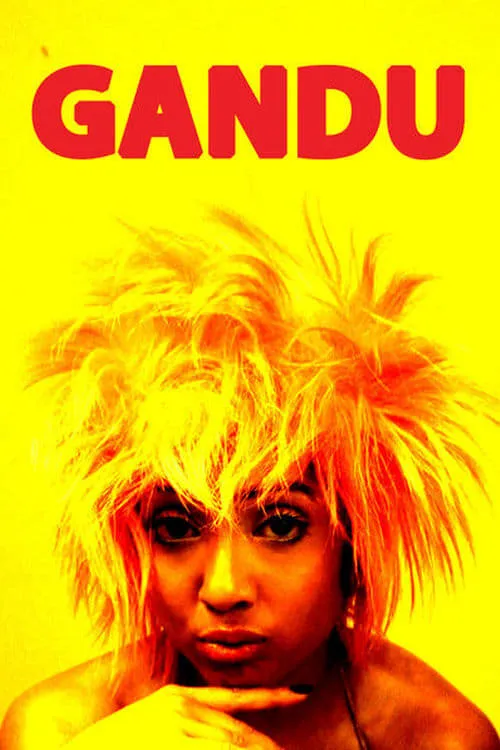Gandu

Plot
Gandu, a 2009 Bengali film written and directed by Qaushik Mukherjee, delves into the complex and often troubled world of a young man struggling to find his place in society. The film offers a poignant portrayal of the harsh realities faced by those living on the margins of urban India, particularly in the slums of Calcutta. The story centers around Gandu, a rebellious and apathetic teenager who finds solace in creating nihilistic rap music. His mother, who lives on the periphery of society, is engaged in a tumultuous relationship with a married man. Gandu's anger and resentment towards this man's presence in his life fuel his destructive behavior, and he decides to steal from his mother's lover. This act sets in motion a chain of events that propels Gandu deeper into darkness and chaos. Gandu meets Tapas, a rickshaw puller who has lost his way in life following the loss of his son. Their unlikely friendship begins with Tapas allowing Gandu to hitch a ride on his rickshaw, and as they navigate the streets of Calcutta, their bond grows stronger. Tapas is drawn into Gandu's world of crime, and they embark on a series of reckless and violent escapades, fueled by Gandu's nihilistic ideologies and Tapas's desperation. As the story unfolds, it becomes clear that Gandu's actions are a cry for help, a desperate attempt to shake off the societal expectations placed upon him. His nihilist rap music serves as a reflection of his inner turmoil, a manifestation of his anger and frustration towards the world around him. Through Gandu's character, the film critiques the societal norms that perpetuate neglect and disregard for the lives of the marginalized. Throughout the film, Qaushik Mukherjee employs a gritty and unflinching visual style, capturing the harsh realities of life in the Calcutta slums. The cinematography is striking, with a muted color palette and a focus on capturing the texture and grit of the urban landscape. The film's score, featuring Gandu's nihilistic rap music, adds to the overall sense of unease and tension, underscoring the characters' emotional turmoil. One of the most striking aspects of the film is its portrayal of the complex relationships between the characters. Gandu's mother, despite her own flaws and weaknesses, is depicted as a deeply compassionate and caring individual who is trying to hold her son together. Her love and concern for Gandu serve as a counterpoint to his nihilistic ideologies, highlighting the pain and vulnerability that underlies his behavior. Tapas's character, on the other hand, is a poignant representation of the human cost of societal neglect. His loss is palpable, and his desperation serves as a stark reminder of the consequences of failing to support and care for those who need it most. Through Tapas's character, the film humanizes the marginalized and the oppressed, highlighting the need for empathy and understanding in the face of suffering. Ultimately, Gandu is a powerful and unflinching portrayal of the complexities of human relationships and the harsh realities of life in the slums of Calcutta. The film is a searing critique of societal norms that perpetuate neglect and disregard, and a powerful testament to the human spirit's ability to find hope and resilience in the face of adversity. Through Gandu's character, the film reminds us that even in the darkest of times, there is always a glimmer of light to be found, and that it is never too late to seek help and support.
Reviews
Recommendations




